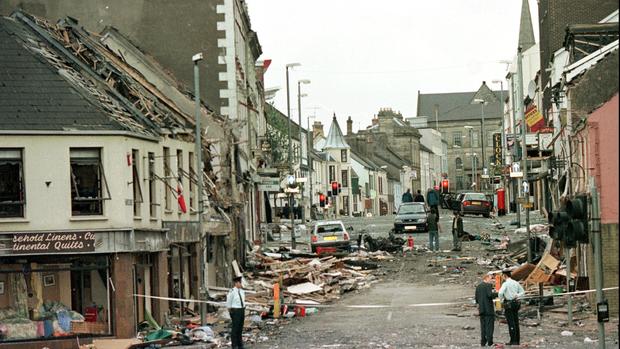Belfast police to sue Boston College for tapes in bid to reopen cold cases
DUBLIN -- Northern Ireland police announced Thursday they will sue to obtain all of the audiotaped interviews of former militants who described their wartime careers to a Boston College oral history project, a move designed to reopen scores of "cold case" murder investigations in the British territory.
Police last year successfully sued Boston College to obtain 11 interviews of Irish Republican Army veterans discussing the 1972 abduction, killing and secret burial of Jean McConville, a 38-year-old Belfast widowed mother of 10.
Those tapes were used as a primary basis for arresting Sinn Fein leader Gerry Adams, who had been accused by some IRA interviewees of being the Belfast IRA commander at the time who ordered McConville's slaying. Adams denied the accusations and was released without charge May 4, although police did send an evidence file to British state prosecutors for potential charges later.
Now, the Police Service of Northern Ireland says it wants the entire audio archive, including the accounts of former Ulster Volunteer Force members involved in the slayings of Catholic civilians. In a statement it said Serious Crime Branch detectives were doing this because of the police's "statutory duty to investigate fully all matters of serious crime, including murder."
The move threatened to open up another legal can of worms for Boston College and the two officials who collected the oral history: journalist Ed Moloney and IRA veteran Anthony McIntyre.
A woman named Dolours Price told CBS News a year and a half ago that she drove the car the night Jean McConville was abducted and killed. She said Adams ordered the killing.
Price, who has since died, also accused Adams of ordering a bombing that she carried out in London.
"Who sent me to London to blow it up?" she asked. "Gerry Adams."
Price died in 2013 "as a result of the toxic effect of a mix of prescribed sedative and anti-depressant medications," the Irish Times reported. Her death was not officially labeled as suspicious.
Dozens of IRA veterans and Protestant militants agreed to speak to McIntyre starting in 2001 on condition their interviews be kept secret until their deaths. Some of those interviewed have said they plan to sue Boston College to have the tapes and any other records of their interviews returned or destroyed. Boston College itself said it was willing to return the interviews to their subjects. Thursday's police move appears designed to prevent that from happening.
"I call upon the U.S. government to resist this fishing expedition by the PSNI (Police Service of Northern Ireland) and to remember that the major casualty of this bid to invade an American college's private archive will be to undermine a peace deal that was in no small way the product of careful American diplomacy and peace building," Moloney said in a statement.
Moloney said it was "no accident" that police are seeking to seize all the tapes following Boston College's offer to relinquish possession of the tapes to their subjects.
NBC News this month initiated its own legal proceedings seeking access to parts of the Northern Ireland audio archive at Boston College.
In its May 6 letter to Judge William Young, the Boston judge who presided over most of the Northern Ireland police-Boston College legal tussle, NBC News said it wanted to see all transcripts, audio recordings and documents that had already been provided to the Northern Ireland police for the McConville investigation.
